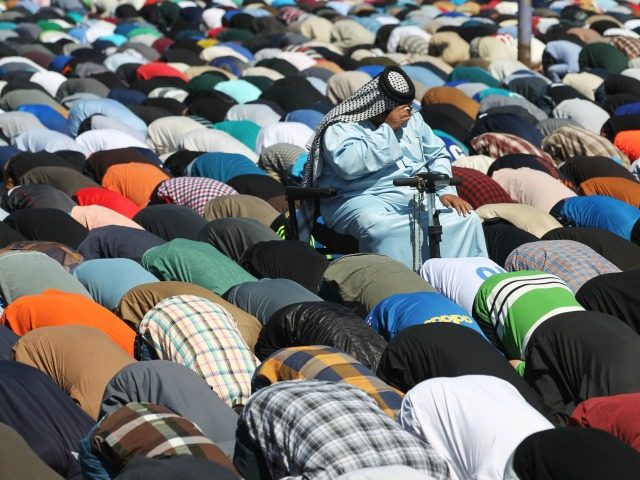Andrew C. McCarthy, Senior Fellow at National Review and former Assistant United States Attorney for the Southern District of New York, writes in National Review that Donald Trump’s proposed temporary ban on Muslim immigration is not unconstitutional. McCarthy notes that “properly vetting would-be immigrants’ religious beliefs is not only legal — it would be wise and prudent.”
Of all the ignorant pronouncements in the 2016 presidential campaign, the dumbest may be that the Constitution forbids a “religious test” in the vetting of immigrants. Monotonously repeated in political speeches and talking-head blather, this claim is heedless of the Islamic doctrinal roots on which foreign-born Islamists and the jihadists they breed base their anti-Americanism. It is also dead wrong.
The clause said to be the source of this drivel is found in Article VI. As you’ll no doubt be shocked to learn, it has utterly nothing to do with immigration. The clause states, “no religious Test shall ever be required as a Qualification to any Office or public Trust under the United States” (emphasis added). On its face, the provision is not only inapplicable to immigrants at large, let alone aliens who would like to be immigrants; it does not even apply to the general public. It is strictly limited to public officials — specifically to their fitness to serve in government positions.
This is equally clear from the clause’s context. Right before the “no religious Test” directive, Article VI decrees that elected and appointed officials “shall be bound by Oath or Affirmation, to support this Constitution[.]” An oath of office customarily requires the official to “solemnly swear” that he or she will support and defend the Constitution, “so help me God.” (See, e.g., the oath prescribed by federal law.) The Framers tacked on the “no religious test” clause to clarify that the mandate of a solemn oath before taking office did not mean fidelity to a particular religious creed was required. The same principle informs the First Amendment’s prohibition on the establishment of a state religion.
This is as it should be. The Constitution prescribes very few qualifications for even the highest offices because its purpose is to promote liberty, which vitally includes the freedom to elect whomever we choose, to vote our own private consciences. The principal check on public officials is the ballot box, not the law’s minimalist requirements.
As voters, we have the right to weigh a candidate’s religious beliefs as a significant part of the total package. We have done so from the Republic’s founding — and to this day, virtually all candidates take pains to wear their faith, however nominal, on their sleeves. When the loathsome Jeremiah Wright fleetingly became an issue in the 2008 campaign, Barack Obama did not thunder, “Under the Constitution, you must not inquire into my religious beliefs!” He threw the Rev under the bus. When it comes to choosing those who will represent us, we do not limit ourselves by intrusive laws, but we reserve the right to bring to bear any consideration, including religion, that we deem relevant.
Read the rest here.

COMMENTS
Please let us know if you're having issues with commenting.